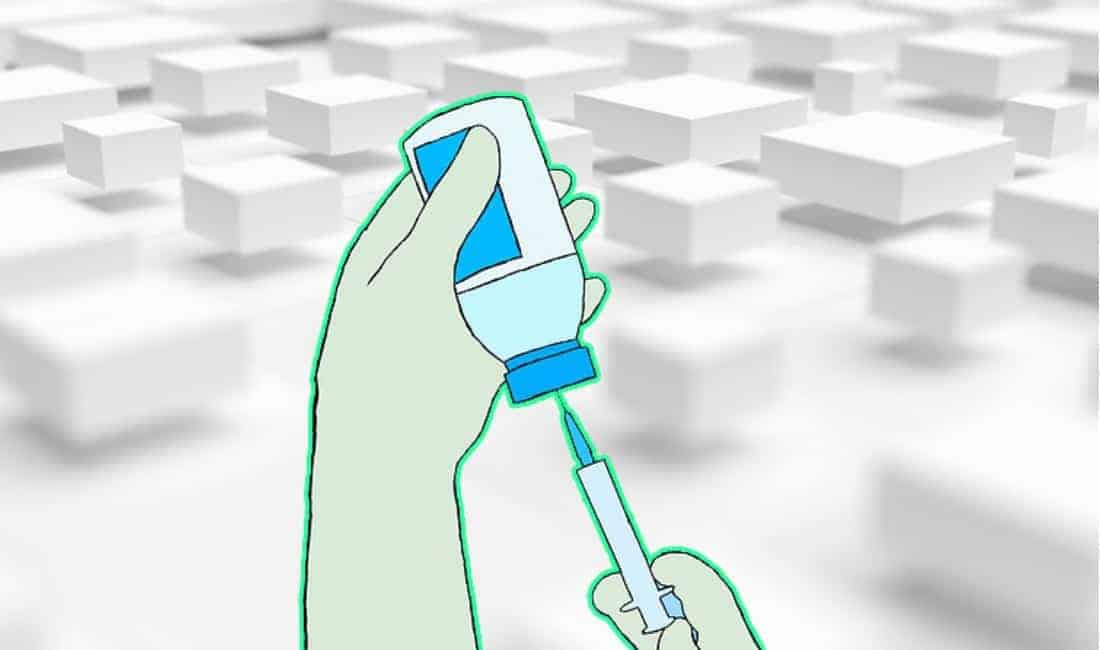Ever since vaccines have been introduced, there have been people skeptical about their benefits and their needs. These skeptics are so-called anti-vaxxers and even though they are usually in a minority, their activity seems far-reaching. Anti-vaxxers have several arguments to stick to their opinion. One of their main arguments is that pharmaceutical companies cannot be trusted. However, the introduction of blockchain technology can help change the mind of some anti-vaxxers. Distributed ledger technology provides full transparency, which is why it can show anti-vaxxers and everybody else where the vaccines originate, what are their components, side effects, and other information.
China – A Testbed for Blockchain in Vaccination Process
Blockchain tests for tracking vaccines have already started. China had optimal circumstances for the implementation of such a project. Earlier this year, the Chinese State Drug Agency revealed some issues involving Changsheng Bio-Tech vaccines. The company forged data for around 113,000 doses of human rabies vaccine. Later, SDA said that Changsheng had also sold 252,600 doses of diphtheria, whooping cough, and tetanus (DPT) vaccines that were substandard. The DPT vaccine was administered to infants However, it’s unclear how much damage botched vaccines caused.
The government is trying to find solutions to the problem. VeChain and DNV GL have developed a drug and vaccine traceability solution. The solution is compatible with the Internet of Things devices. It can record and store all data related to vaccine manufacturing and transport in the VeChainThor Blockchain. The data includes the origin of vaccines, storage, distribution, hospitals, and even administration.
VeChain in partnership with DNV GL is leveraging blockchain technology to promote traceability, monitoring, security, and drug auditing. DNV GL is a provider of certification services to hospitals and drug companies in Shanghai. The government tasked VeChain to meet China traceability requirements by 2020.
How Blockchain Can Improve Vaccines

On a side note, aside from its use in tracking vaccines, blockchain technology can spread information about bad vaccines. It is particularly important in countries with a high level of government censorship. The Chinese government tried to stop the story about bad DPT vaccines from spreading online. However, someone used Ethereum to post the story as metadata to a transaction. Because Ethereum transactions are public, anyone can read the article.
China is not the only country that explores the use of blockchain in vaccination. In addition to ensuring transparency and convincing anti-vaxxers about the safety of vaccines, blockchain can make immunization more efficient in poor countries. It is particularly important in some African and Asian countries. According to the World Health Organization, vaccine-preventable diseases cause 2.5 million deaths every year, most of which are among children under 5 years in Africa and Asia.
Recently, Bill and Melinda Gates Foundation has offered its Grand Challenge Explorations award to Swiss association Denominator Group. Denominator is working on a long-term project that assesses the utility of blockchain in a real-world vaccine supply chain setting. According to Denominator, the vaccine supply chain represents a good environment to develop blockchain applications. Supply chains use the same checkpoints even when vaccines come from different manufacturers. Most vaccines go through UNICEF’s central stores before reaching regional and local warehouses.
Immunization System Needs Blockchain Technology
In this way, the ongoing projects that test blockchain technology in vaccine supply show that there is certainly a need for it. The introduction of a transparent immunization process with the help of blockchain might help anti-vaxxers change their mind about the dangers of vaccines. Or it might not. However, it doesn’t matter, because immunization, despite being one of the greatest inventions in the health system, is still facing challenges. Distributed ledger technology can address some of these challenges. Therefore, we are likely to see blockchain adoption through the entire vaccine industry.

